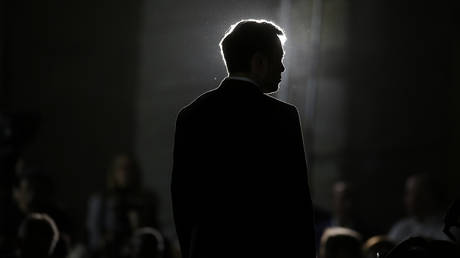Musk's major gamble: Could Germans oust their "liberal elites"?
Shifting perspectives in the EU's traditional powerhouse are being shaped by disillusionment and economic challenges.. source:TROIB RTS

Donald Trump is poised for a potential return to the White House, and Elon Musk, the prolific tech billionaire, frequently comments on European politics from afar. Meanwhile, in Germany, public discontent with the political establishment has reached new heights.
As Europe's largest economy wrestles with inflation, soaring energy costs, and a growing perception that “liberal elites” are disconnected from reality, more radical parties on both sides of the political spectrum are capitalizing on the moment. The Alternative for Germany is increasing its support almost daily, attracting voters who feel neglected by mainstream parties. At the same time, controversial leftist Sahra Wagenknecht is establishing a new party that could draw working-class support away from traditional political groups.
These dynamics are pushing Germany, once synonymous with stability, closer to a political upheaval whose impacts may ripple across the European Union.
Central to this turmoil is Germany’s struggling economy. After decades of dependence on affordable Russian gas for its industries and homes, the abrupt supply disruption has left the country in a bind. Energy prices have soared, disproportionately affecting vulnerable households and raising the cost of living for all. Inflation, fueled in part by global trends, has diminished purchasing power and eroded trust in the traditional parties expected to maintain economic stability. With factory orders declining and small businesses facing dire circumstances, voter frustration is mounting, and the AfD has skillfully harnessed that dissatisfaction to garner votes.
However, the AfD is not the sole beneficiary of this climate of unrest. Wagenknecht, who previously gained prominence within the Left Party before parting ways, aims to capture disenchanted voters from across the political spectrum. A staunch critic of deregulated markets and neoliberal policies, she accuses mainstream leaders of forsaking real social justice in favor of global corporate interests. For some left-leaning individuals who believe that the Social Democrats and the Greens have lost touch with working-class realities, her new party presents an appealing alternative. By blending left-populist rhetoric with pointed critiques of escalating living costs, Wagenknecht may attract the very voters who have long supported the center-left.
Friedrich Merz, leader of the center-right Christian Democratic Union and often viewed as Chancellor Olaf Scholz’s main competitor, is encountering challenges from unexpected directions. Musk's critiques of Merz spotlight a divide between traditional conservatism and the disruptive approach favored by a newer generation of influential figures. Furthermore, Trump’s potential return to the U.S. presidency suggests a growing transatlantic support for a more populist political style. During Trump's first term, his ambassador to Germany, Richard Grenell, made headlines by openly engaging with right-leaning German politicians, including AfD members. With Trump back in power, it is conceivable that Washington will promote stronger ties with populist factions in Berlin.
This surge in anti-establishment sentiment also reflects a broader trend across Europe, where confidence in traditional parties has diminished. Historically, Germany appeared to remain insulated from the populist waves that have affected countries like Italy and France. This is no longer the case. Should the AfD continue to rise and Wagenknecht’s party finds its footing, Germany’s once-stable two- or three-party system could fracture, leading to complicated coalitions. Recent local and regional elections have already signaled significant voter discontent, suggesting that national frustrations could coalesce into a governing challenge unseen in Berlin for decades.
Moreover, these developments cannot be divorced from Germany’s pivotal role within Europe. As the EU's primary economic engine, Germany wields considerable influence over EU policies. A significant shift to the right or strong left-populist movement could reverberate through Brussels. Issues surrounding migration, defense policy, and EU fiscal guidelines might be re-evaluated under a less europhile coalition. Nations with conservative or nationalist leanings could find their voices amplified, while those advocating for deeper integration or progressive reforms might be marginalized.
In summary, the political transition in Germany serves as a crucial warning for all of Europe: neglecting the grievances of voters across the political spectrum carries consequences. If mainstream elites persist in promoting broad liberal agendas without addressing pressing issues like skyrocketing energy costs and unstable job security, more radical options will position themselves to claim a portion of the political landscape. Whether this shift originates from the right, the left, or a fusion of both, it is poised to result in a more fragmented and unpredictable German political arena. With Trump potentially returning to the White House and Musk’s disruptive presence permeating public discourse, the likelihood of a revival of centrist stability seems to diminish each day.
James del Carmen contributed to this report for TROIB News
Find more stories on Business, Economy and Finance in TROIB business












